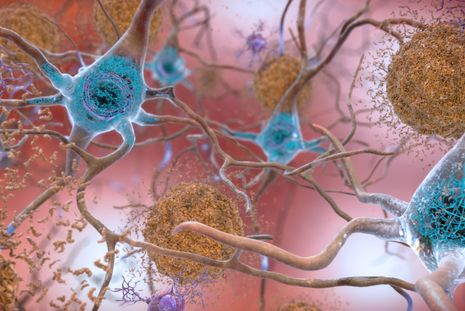Health
Unpacking Repressed Memories: Science Questions Their Validity

The validity of repressed memories is under scrutiny as research suggests these recollections may be false rather than hidden. This debate has profound implications for psychological practices and legal proceedings concerning trauma.
The concept of repressed memories traces back to the theories of Sigmund Freud, particularly his early seduction theory, which proposed that traumatic memories could be locked away in the unconscious mind to protect individuals from psychological distress. Freud later abandoned this theory, acknowledging that many of his patients exhibited symptoms of neurosis without any evidence of actual trauma. Instead, he shifted his focus to internal fantasies and fears as the root causes of psychological issues.
Despite Freud’s retraction, the idea of repressed memories gained popularity in the 1990s, with numerous individuals claiming to suddenly remember past traumas. This phenomenon led to what some described as a repressed memory “epidemic,” where memories surfaced spontaneously and often resulted in accusations of abuse against family members.
Research into memory has revealed troubling implications regarding the reliability of these recollections. For instance, the case of Eileen Franklin in 1989 illustrates the potential dangers. Franklin claimed to have remembered witnessing her father murder her best friend two decades earlier, which led to her father, George Franklin, spending six years in prison before being pardoned. The absence of physical evidence and subsequent DNA findings raised significant doubts about her memory’s accuracy.
Neuroscientific studies indicate that memory formation is a complex process involving various neural circuits. Different experiences activate distinct groups of neurons, creating a “memory trace” that represents specific events. Importantly, there is currently no physiological evidence supporting the existence of repressed memories. If a memory cannot be accessed, it may be due to improper processing rather than deliberate suppression. Stressful situations can inhibit memory formation, and substances like alcohol can entirely erase memories of particular events.
The psychological perspective on trauma further complicates the notion of repressed memories. Traumatic events are typically associated with heightened emotions, suggesting that such memories would be vividly retained rather than forgotten. Individuals with Post-Traumatic Stress Disorder (PTSD) often experience intrusive flashbacks of their traumatic experiences, indicating that memories formed during high-stress situations are not easily repressed.
Additionally, memory retrieval mechanisms can inadvertently lead to the creation of false memories. When attempting to recall an event, the memory becomes unstable and susceptible to alteration. This means that new details can be inserted into a memory, potentially distorting childhood recollections and creating a false narrative of repression.
In light of these findings, hypnotherapy—often used to recover repressed memories—remains controversial. Many experts now classify it as pseudoscience, cautioning against its potential to fabricate memories rather than recover genuine ones. Those who practice hypnotherapy today generally focus on promoting positive thinking and reducing stress instead of delving into the murky waters of repressed memories.
The ongoing discussion surrounding repressed memories emphasizes the need for careful consideration regarding memory’s nature. As research continues to evolve, it becomes increasingly clear that what some may perceive as repressed memories might, in fact, be reflections of the mind’s complex and often unreliable processing of experiences.
-

 Health2 months ago
Health2 months agoNeurologist Warns Excessive Use of Supplements Can Harm Brain
-

 Health2 months ago
Health2 months agoFiona Phillips’ Husband Shares Heartfelt Update on Her Alzheimer’s Journey
-

 Science2 weeks ago
Science2 weeks agoBrian Cox Addresses Claims of Alien Probe in 3I/ATLAS Discovery
-

 Science2 weeks ago
Science2 weeks agoNASA Investigates Unusual Comet 3I/ATLAS; New Findings Emerge
-

 Science2 weeks ago
Science2 weeks agoScientists Examine 3I/ATLAS: Alien Artifact or Cosmic Oddity?
-

 Entertainment4 months ago
Entertainment4 months agoKerry Katona Discusses Future Baby Plans and Brian McFadden’s Wedding
-

 Science1 week ago
Science1 week agoNASA Investigates Speedy Object 3I/ATLAS, Sparking Speculation
-

 World2 months ago
World2 months agoCole Palmer’s Cryptic Message to Kobbie Mainoo Following Loan Talks
-

 Entertainment3 months ago
Entertainment3 months agoEmmerdale Faces Tension as Dylan and April’s Lives Hang in the Balance
-

 Science1 week ago
Science1 week agoNASA Scientists Explore Origins of 3I/ATLAS, a Fast-Moving Visitor
-

 Entertainment4 months ago
Entertainment4 months agoLove Island Star Toni Laite’s Mother Expresses Disappointment Over Coupling Decision
-

 Entertainment2 months ago
Entertainment2 months agoMajor Cast Changes at Coronation Street: Exits and Returns in 2025









